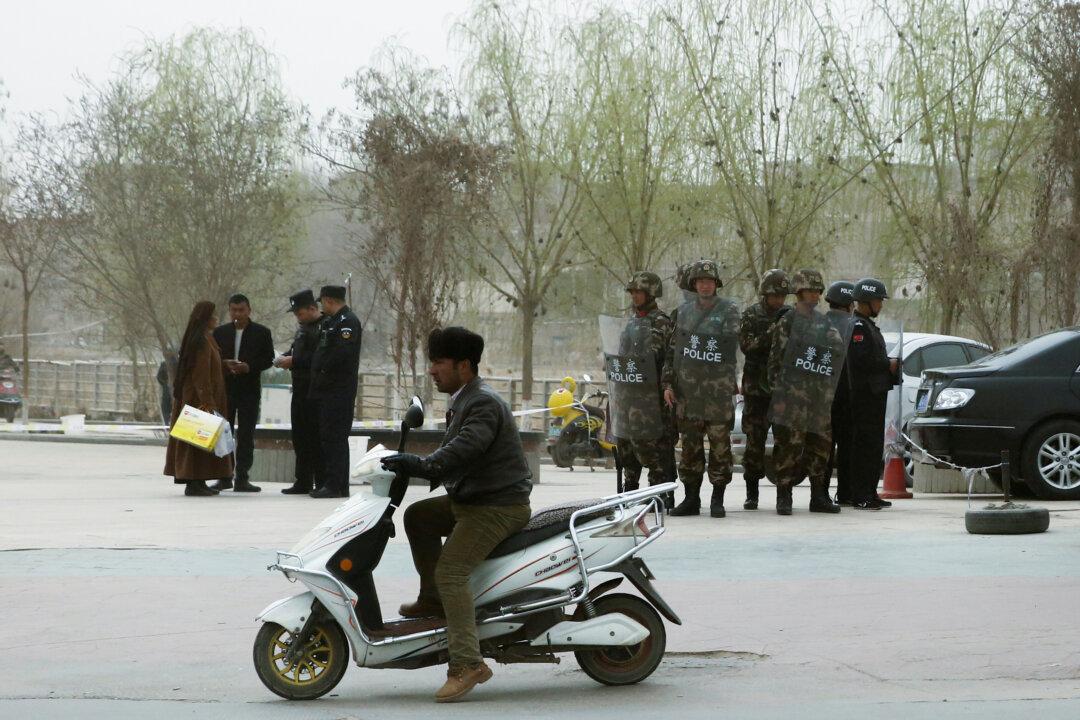BEIJING—The Turkic, mostly Muslim Uyghur minority in China’s Xinjiang region face arbitrary detentions, daily restrictions on religious practice, and “forced political indoctrination” in a mass security crackdown, Human Rights Watch said on Sept. 10.
The United Nations human rights panel said in August that China is believed to be holding up to 1 million ethnic Uyghurs in a secretive system of “internment camps” in Xinjiang, in China’s far west, where they undergo political education.
The Chinese regime has used the excuse of potential Islamic threats and ethnic riots to crack down on the local population in Xinjiang.
Uyghurs and other Muslims held in concentration camp-like facilities, known as “re-education” centers, are forbidden from using Islamic greetings, must learn Mandarin Chinese, and sing propaganda songs, according to a report by Human Rights Watch based on interviews with five former camp detainees.
People in Xinjiang with relatives living abroad in one of 26 “sensitive countries,” including Kazakhstan, Turkey, and Indonesia, have been targeted by the authorities and are often held for several months, without any formal procedure, the group said.
Punishments for refusing to follow instructions in the camp could mean being denied food, being forced to stand for 24 hours, or even solitary confinement, it said.
Security conditions in Xinjiang outside the camps had also intensified markedly and now bear “a striking resemblance to those inside,” Hong Kong-based Human Rights Watch researcher Maya Wang said, based on interviews with 58 former Xinjiang residents now living abroad.
Wang and her team only spoke with people who had left Xinjiang due to a lack of access to the region and to avoid endangering those still living there.
New security measures described by interviewees include proliferating checkpoints that make use of facial recognition technology and sophisticated police monitoring systems, such as each house having a QR code that, when scanned, shows the authorities who the approved occupants are.
Monitoring of Islamic religious practices, such as asking people how often they pray and the closure of mosques, as well as regular visits by Chinese Communist Party officials to rural parts of Xinjiang, mean that practicing Islam “has effectively been outlawed,” Wang said.





